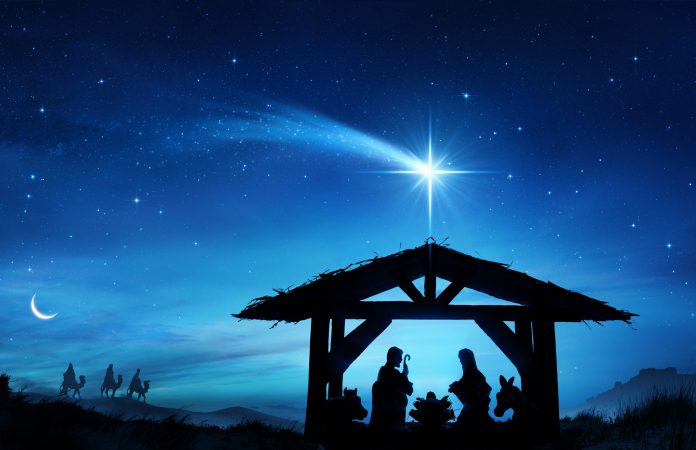In this last week before Christmas, millions of people across the world are preparing to celebrate. Families will gather; music will be in the air. Christmas has become a holiday, a time for exchanging presents and cards, for seeing friends and family. It is a commercial bonanza, with people straining their budgets to buy gifts and merchants rolling out bargains to lure people to spend more. For too many–it is a difficult time, particularly for the cold and hungry, those separated from families, those alone, imprisoned, or sick.
So, each year, I take this moment to recall the true meaning of Christmas. Christmas is literally the mass for Christ, the celebration of the birth of Jesus, and a time for prayer, reflection, for service. The story of Jesus speaks to us till this day.
He was born under occupation. Joseph and Mary, were ordered to go far from home to register with authorities. The innkeeper told Joseph there was no room at the inn. Jesus was born on a cold night, in a stable, lying in a manger. He was an “at risk” baby. His earthly father was a carpenter, a worker, not a prince or a banker.
He was born at a time of great misery. Prophets predicted the coming of a new Messiah who would rout the occupiers and free the people. Many expected a mighty warrior like the superheroes of today’s movies. Fearing the prophecy, the Roman King Herod ordered the “massacre of the innocents,” the slaughter of all boys two and under in Bethlehem and the nearby region.
Jesus confounded both Herod’s fears and the people’s fantasies. He was a Prince of peace, not of war. He gathered disciples, not soldiers. His ministry, as written in Isaiah 62:1 was “the Lord has anointed me to bring good news to the poor.” We will be judged, he taught us, not for our wealth or our armaments but by how we treat “the least of these,” how we treat the stranger on the Jericho Road. He called on us to feed the hungry, clothe the naked, care for the sick, and comfort the refugee. He threw the moneylenders from the Temple and gathered the discarded, the disdained, and the disabled around him.
He became a great liberator through his teachings and his example, not his sword. He converted rather than conquered. He accumulated no worldly wealth and held no official position. The powerful feared his teachings and plotted his crucifixion. Yet he succeeded beyond all imagination to transform the world. The Prince of Peace, he taught us that peace is not the merely absence of violence; it is the presence of justice and righteousness.
Today his teachings remain compelling. Already this year, 42,731 people have died from gun violence. Jesus’ call for non-violence over violence offers the only way out. At a time when many feel threatened by refugees and immigrants, his call to care for the stranger on Jericho Road reminds us that “blessed are the merciful, for they will be shown mercy.” With Ukraine and other countries suffering the horrors of war, and growing concern that the war may escalate to direct conflict between nuclear powers, he reminds us that “blessed is the peacemaker.”
In an age of global pandemics, goodwill to all is not merely a holiday slogan–it is a survival imperative. Ignoring the climate crisis that increasingly threatens all of God’s creation now costs us daily in lives, in the destructions of extreme weather, and in economic disruptions that already displace millions from their homes.
This year, the fear of crime and violence has led many to call for a new crackdown for locking up more people. Yet we already imprison more people than any nation in the world. Each year, my family and I visit Chicago’s vast prison seeking to offer some small comfort to those separated from their families. Each year, we call on officials to exercise mercy, particularly on those locked up for non-violent crimes.
We should not let the deeper meaning of Christmas be lost in the wrappings. While Jesus was not a partisan or a politician, his birth and his ministry were immensely political – both in the expectations of the people and in the fears of the powerful. Yet, instead of turning us on one another, he called each of us to our highest selves, our better angels. He demonstrated the world-changing power of love. This Christmas, this surely is a message not merely to remember but to practice.
Merry Christmas, everybody.


